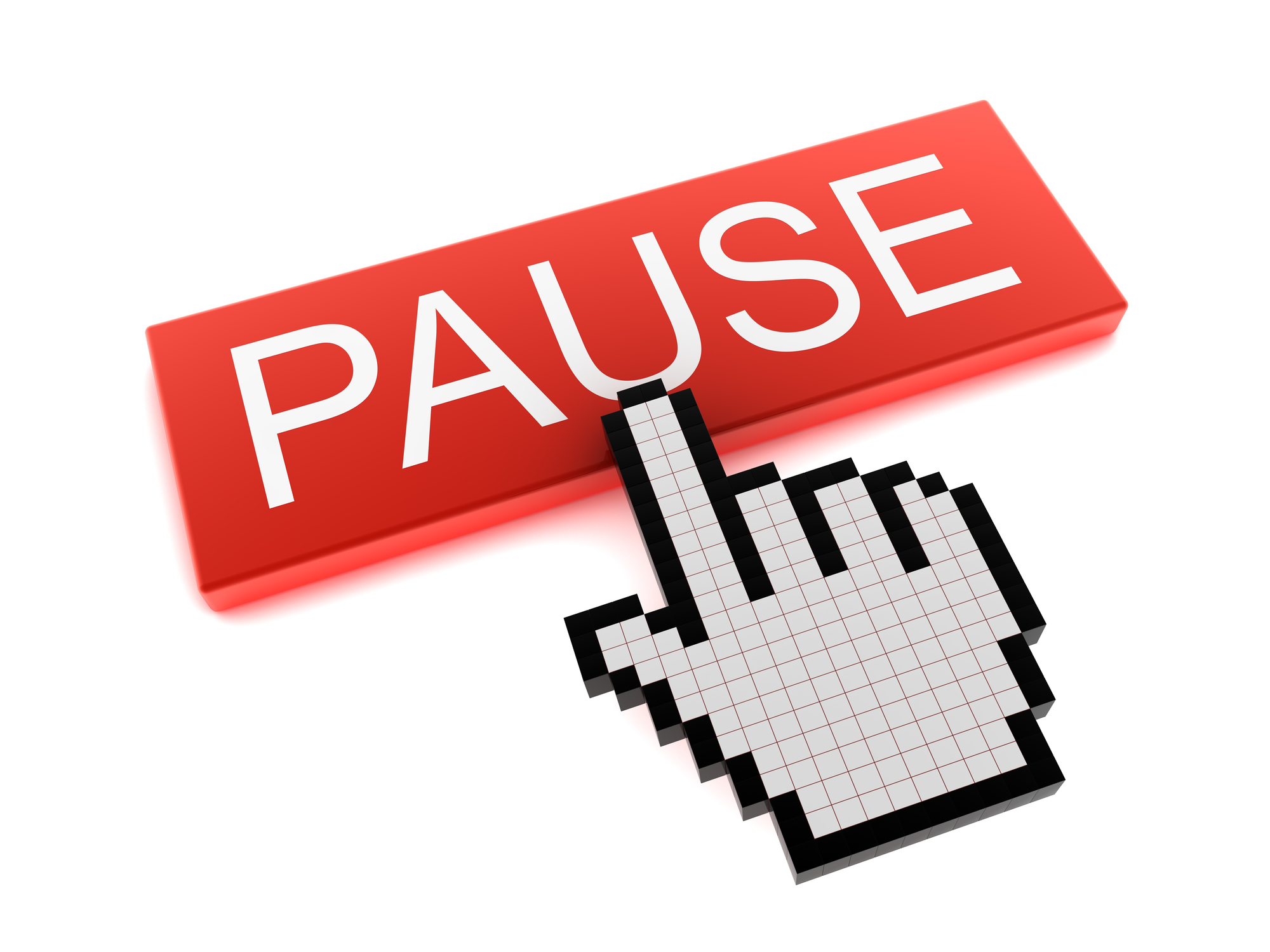Two Ways To Stop and Restart Social Security: Ditch the Regret
Learn how to stop and restart Social Security the smart way.

Profit and prosper with the best of Kiplinger's advice on investing, taxes, retirement, personal finance and much more. Delivered daily. Enter your email in the box and click Sign Me Up.
You are now subscribed
Your newsletter sign-up was successful
Want to add more newsletters?

Delivered daily
Kiplinger Today
Profit and prosper with the best of Kiplinger's advice on investing, taxes, retirement, personal finance and much more delivered daily. Smart money moves start here.

Sent five days a week
Kiplinger A Step Ahead
Get practical help to make better financial decisions in your everyday life, from spending to savings on top deals.

Delivered daily
Kiplinger Closing Bell
Get today's biggest financial and investing headlines delivered to your inbox every day the U.S. stock market is open.

Sent twice a week
Kiplinger Adviser Intel
Financial pros across the country share best practices and fresh tactics to preserve and grow your wealth.

Delivered weekly
Kiplinger Tax Tips
Trim your federal and state tax bills with practical tax-planning and tax-cutting strategies.

Sent twice a week
Kiplinger Retirement Tips
Your twice-a-week guide to planning and enjoying a financially secure and richly rewarding retirement

Sent bimonthly.
Kiplinger Adviser Angle
Insights for advisers, wealth managers and other financial professionals.

Sent twice a week
Kiplinger Investing Weekly
Your twice-a-week roundup of promising stocks, funds, companies and industries you should consider, ones you should avoid, and why.

Sent weekly for six weeks
Kiplinger Invest for Retirement
Your step-by-step six-part series on how to invest for retirement, from devising a successful strategy to exactly which investments to choose.
Even if you did your homework to understand the basics of Social Security claims before filing, you may want a do-over. Many older Americans are relieved to learn they can stop and restart Social Security benefits. Especially if you regret taking Social Security without realizing you were lowering your monthly Social Security check, take a deep breath and read over these two options.
There are no universal rules regarding who should stop or restart their benefits. And some of the options are nuanced. Whether you decided to return to work, your family situation has changed, or you simply no longer need the money, you may be able to temporarily pause or undo your decision to collect Social Security. It's important to take the time to understand the choices available to you and how they will affect your finances.
In general, you can boost your Social Security benefits by delaying the age at which you start taking them until you reach age 70. You can boost your check by 2/3 of 1% for every month you delay claiming benefits beyond your full retirement age (FRA). To see how this rule plays out in the real world, consider looking at How Your Social Security Check Changes at Ages 62, 65, 66, 67 and 70, and the average Social Security check by age.
From just $107.88 $24.99 for Kiplinger Personal Finance
Become a smarter, better informed investor. Subscribe from just $107.88 $24.99, plus get up to 4 Special Issues

Sign up for Kiplinger’s Free Newsletters
Profit and prosper with the best of expert advice on investing, taxes, retirement, personal finance and more - straight to your e-mail.
Profit and prosper with the best of expert advice - straight to your e-mail.
Why you might want to stop Social Security

Why would anyone consider stopping Social Security benefits?
Unfortunately, claiming Social Security before you reach full retirement age will reduce your monthly payments and spousal/survivor benefits. So, most people stop benefits in order to increase the monthly payment by restarting at an older age. Fidelity estimates that 27% of Americans start claiming these benefits at age 62, the first year they are eligible, and 58% start claiming them before reaching full retirement age.
Of course, some people have limited financial resources, health issues or caregiving responsibilities, which cause them to claim benefits upon eligibility or soon after. However, some retirees regret the decision when they realize they can't support themselves on the lower payments.
Fortunately, you don't have to stick with the decision to take benefits before full retirement age and receive lower payments. Whether you made a mistake or have become more financially secure, you can stop and restart your Social Security benefits. Remember, this flexibility comes with specific eligibility rules and financial implications to consider.
1- Applying for withdrawal of Social Security benefits

If you filed to start receiving Social Security within the last 12 months and now want to return to work or no longer need the money, you can file for a "withdrawal" of benefits using Form SSA-521. However, in this scenario, you must pay back everything you have already accepted from Social Security.
The amount that must be repaid includes all the benefits paid to your spouse or other beneficiaries and everything the Social Security Administration (SSA) withheld for taxes, Medicare premiums, etc. If any medical expenses were covered by Medicare Part A during this time, those will need to be repaid to Medicare as well.
Filing for a withdrawal essentially resets your situation, making it as if you had never filed to begin benefits at all. However, if your withdrawal affects other beneficiaries, like your spouse, they must also sign a consent form to stop the benefits.
After filing Form SSA-521, you will have 60 days to reconsider and withdraw the application before it is processed, and you'll have to return everything that was paid out under your benefits.
Suspending Social Security benefits

On the other hand, if it's been more than 12 months since you started accepting Social Security benefits, you'll have to wait until you reach full retirement age (FRA) before you can suspend your benefits. FRA is the age at which you become eligible to receive full benefits from Social Security. It's age 66 and ten months for those born in 1959 and rises to age 67 for those born in 1960 or later.
Temporarily suspending your benefits after you reach FRA will earn you delayed retirement credits, boosting your monthly benefit payment. The SSA offers a chart listing the amounts of those benefit increases based on your date of birth and explaining how it calculates them. For people born after Jan. 1, 1943, the credit for each month you delay amounts to 2/3 of 1%.
You can ask the SSA to suspend your benefits via phone, in writing, or by visiting your local SSA office. If you don't ask the SSA to resume your Social Security payments before you turn 70, it will automatically do so when you reach that age.
It's your decision, but consider getting help

There is much to consider before you claim Social Security or before you withdraw or suspend your benefits. In addition to factors like your expected longevity and the size of your nest egg, it's also critical to account for your Medicare Part B premiums.
These premiums would normally be taken out of your Social Security benefits, but in this case, the Centers for Medicare and Medicaid Services will bill you directly for those premiums if you suspend your benefits.
Of course, deciding when to accept Social Security benefits is a personal decision only you can make. However, you may wish to speak to a financial adviser or a professional specializing in Social Security benefits.
Read More
Profit and prosper with the best of Kiplinger's advice on investing, taxes, retirement, personal finance and much more. Delivered daily. Enter your email in the box and click Sign Me Up.

Jacob is the founder and CEO of ValueWalk. What started as a hobby 10 years ago turned into a well-known financial media empire focusing in particular on simplifying the opaque world of the hedge fund world. Before doing ValueWalk full time, Jacob worked as an equity analyst specializing in mid and small-cap stocks. Jacob also worked in business development for hedge funds. He lives with his wife and five children in New Jersey. Full Disclosure: Jacob only invests in broad-based ETFs and mutual funds to avoid any conflict of interest.
-
 Quiz: Do You Know How to Avoid the "Medigap Trap?"
Quiz: Do You Know How to Avoid the "Medigap Trap?"Quiz Test your basic knowledge of the "Medigap Trap" in our quick quiz.
-
 5 Top Tax-Efficient Mutual Funds for Smarter Investing
5 Top Tax-Efficient Mutual Funds for Smarter InvestingMutual funds are many things, but "tax-friendly" usually isn't one of them. These are the exceptions.
-
 AI Sparks Existential Crisis for Software Stocks
AI Sparks Existential Crisis for Software StocksThe Kiplinger Letter Fears that SaaS subscription software could be rendered obsolete by artificial intelligence make investors jittery.

